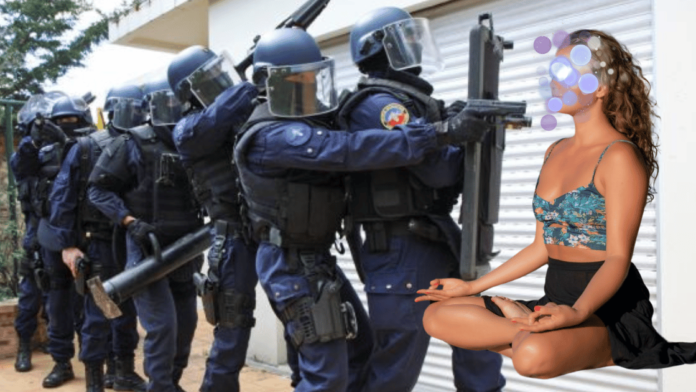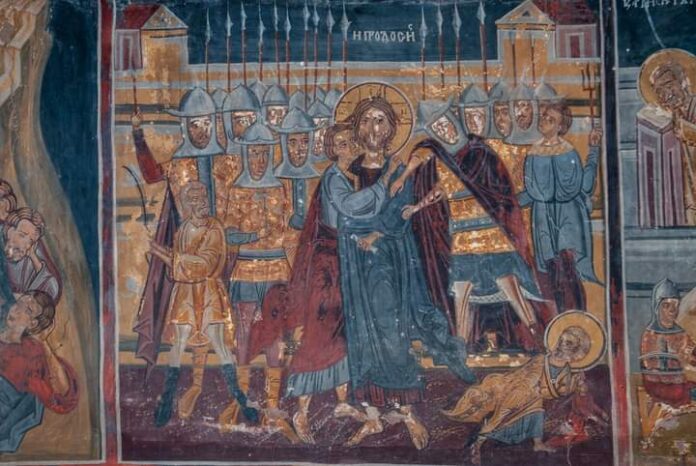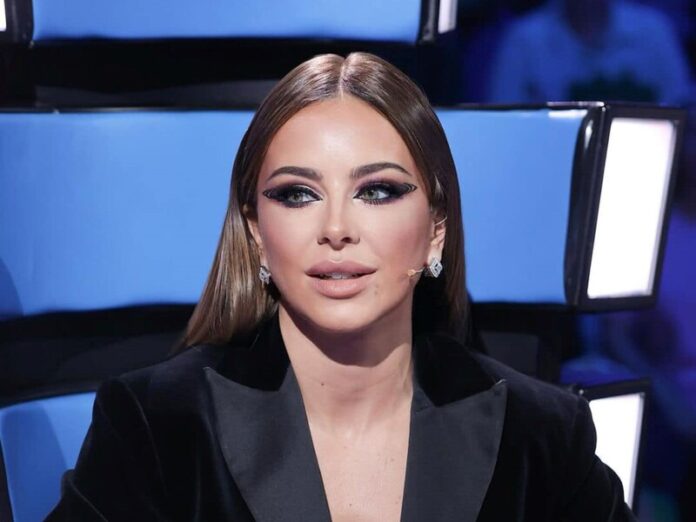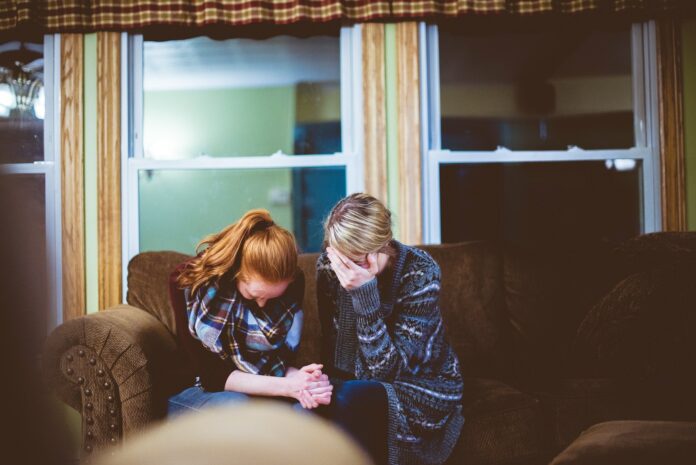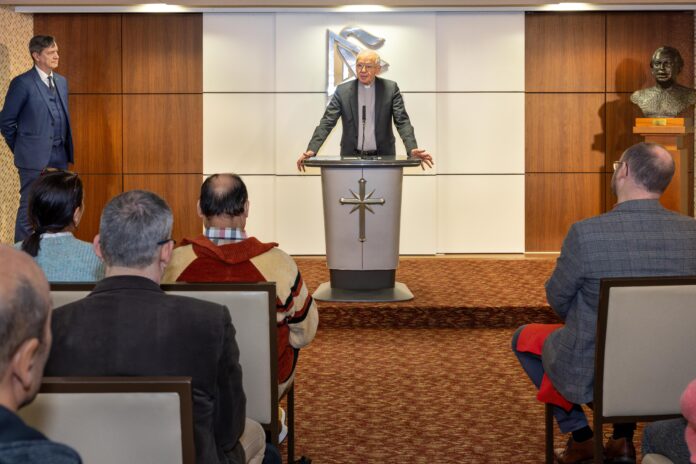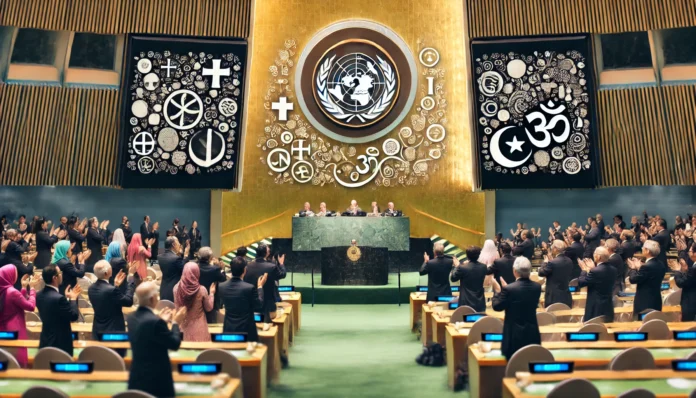On 28 November, it will be one year since a SWAT team of around 175 policemen wearing black masks, helmets, and bullet proof vests, simultaneously descended at 6 am on eight separate houses and apartments in and around Paris but also in Nice where Romanian yoga practitioners had decided to go into spiritual retreat. The police forces were then brandishing semi-automatic rifles, shouting, making very loud noises, crashing doors and putting everything upside down.
The November 2023 raids were not an operation against a terrorist or armed group or a drug cartel. They were raids targeting eight private places mainly used by peaceful Romanian yoga practitioners, but the police suspected these places to be used for illegal activities: traffic in human beings, sexual exploitation and forcible confinement.
In fact, most of the yoga practitioners had chosen to combine the pleasant with the useful in France: yoga and meditation in villas or apartments kindly and freely put at their disposal by their owners or tenants who were also mainly yoga practitioners of Romanian origin and at the same time to enjoy picturesque natural or other environments.
They were IT experts, engineers, designers, artists, medical doctors, psychologists, teachers, university and high school students, and so on.
About the absence of victims and questions raised by the search warrant
The objective of the raid was not only to arrest criminals but also to save victims or survivors of such alleged illegal activities. The ‘problem’ is that the yoga practitioners interrogated by the police strongly denied being victims of anything during their stay and consequently, did not file any complaint against their hosts.
One year later, it is still not officially and publicly known which actors and which preliminary investigation elements convinced a prosecutor to launch raids of such a magnitude.
The law enforcement forces had just been told that the operation was based on a search warrant meant to catch criminals involved in “trafficking in human beings”, “forcible confinement” and “abuse of vulnerability” in organized gang.
Noteworthy is that the wording of the warrant shaped the minds of the interrogators on the search places and in police stations as well as of the lawyers hired for legal assistance and interpreters in their interaction with the arrested people, around 50. This is what emerged from the testimonies of numerous yoga practitioners placed in police custody collected by Human Rights Without Frontiers. In the eyes of all these actors, this was a very serious case and among them there might have been some traffickers in human beings, sexual abusers and mind manipulators.
In November 2023, six people were arrested and put in pretrial detention. Among them Gregorian Bivolaru, the spiritual master of MISA (Movement for Spiritual Integration into the Absolute), an esoteric yoga movement that he founded in 1990 in Romania and had 30,000 practitioners throughout the world before the COVID. He was the subject of an Interpol arrest warrant because six former disgruntled students of MISA lodged a complaint against him many years ago for trafficking in human beings, sexual abuse and forced confinement but as of end 2024, there has not been any trial and therefore any confirmation of such accusations.
The other detainees were the owners or the tenants of the searched places who were investigated about their possible involvement in the criminal activities mentioned in the French warrant.
The arrest of Mihai and Adina Stoian in Georgia
On 22 August 2024, Mihai and Adina Stoian, known as esoteric yoga teachers and trainers, were arrested when they entered Georgia, as part of a tourist trip, through the border with Turkey at Sarpi.
Georgian media reported that the Stoians were arrested on the basis of an Interpol arrest warrant and are wanted by the judicial authorities in France. Additionally, the Georgian press said that they have also been prosecuted “in Finland and Romania for child prostitution and rape.” This last information is however false.
As far as we know, the Stoians are not under any prosecution in Finland or Romania. It is only when they were arrested in Georgia that they were notified of an international arrest and extradition warrant from the Court of Paris, in France.
According to some French media, Mihai and Adina Stoian are considered to have been close to Gregorian Bivolaru for many years and are said to run the movement in his absence.
Mihai and Adina Stoian deny having been involved in the administration of the MISA movement. However, they had working relations with other yoga movements, such as the ATMAN Federation and NATHA.
ATMAN, the International Federation of Yoga and Meditation, was created by yoga teachers and trainers from various yoga movements on 7 December 2004 and registered in the UK where it is still located. In 2006, Mihai and Adina Stoian joined ATMAN and trained other yoga teachers on a voluntary basis. As senior teachers, they started unifying the teaching program and methodology. At some point, MISA became a member of ATMAN and consequently, the Stoians claim that their relationship with MISA was only indirect. On 27 October 2016, Mihai Stoian became one of the three directors of ATMAN. Adina went on training yoga teachers and has never been a member of the board.
While the Stoians are in prison in Georgia, a dozen policemen in Denmark accompanied by a representative of the French prosecutor searched the common spaces of the NATHA Yoga Association in Denmark where the Stoians were working part-time. Nobody was arrested or interrogated during the search. The police just took away some electronic devices.
Some conclusions
The French warrant leading to the raids in France in November 2023 and the international arrest warrant implemented in Georgia, as they were drafted, created prejudices and shaped the minds of all the actors involved in the investigation who obviously failed to consider the charges as nothing more than allegations.
Moreover, many journalists and media outlets wrongly perceived the accusations as solid facts, failing quite often to mention the absence of victims and the presumption of innocence of the suspects as the case is still being investigated and as we are still far from any court decision.
Last but not least, it is noteworthy that a significant number of Romanian female and male yoga practitioners kept in custody after the raids in France have lodged complaints against the French authorities for failing to respect the legislation during their detention.
More reading
MISA: Spiritual Explorations and Experiences in the Practice of Esoteric Yoga
(The Journal of CESNUR, 2 November 2024)
By Raffaella Di Marzio , Center for Studies on Freedom of Religion Belief and Conscience (LIREC)



